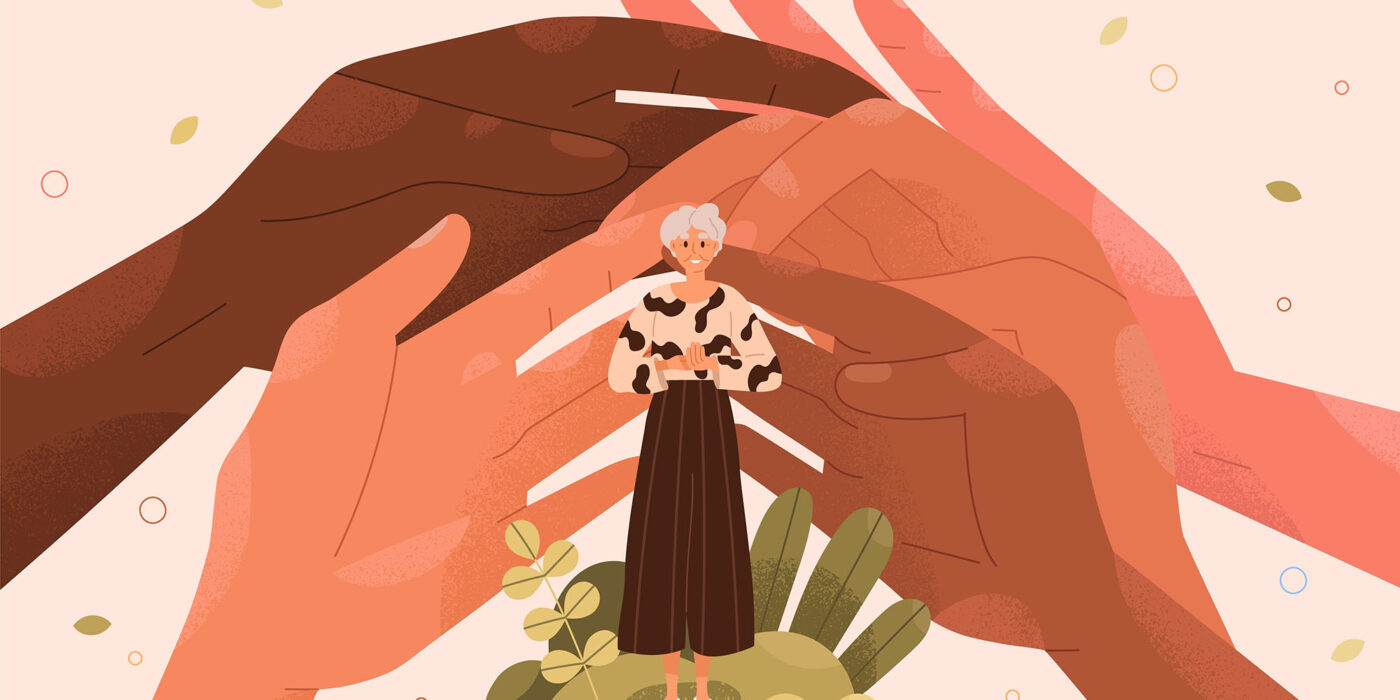Judgement says, “I see you; you’re different from me.” Compassion says, “I see you and we’re in this together.”
Judgement makes us unavailable for new information; compassion opens our hearts and minds.
We spend a lot of energy being concerned about other people’s judgement of us for any number of reasons. Too often, our worry prevents us from doing things we might really enjoy like meeting new people or having new experiences. What we forget is that other people’s judgement of us reflects something in them and has nothing to do with us.
People are going to judge us; that’s a fact of life. It’s how we respond that makes the difference. When we choose our response, we must remember that we don’t have to take everyone’s opinion on board because their view isn’t about us at all. However, if we feel their judgement is warranted, we can ask ourselves what we can learn from it.
People have judged me because I’m short in stature. Truth be told, being small has been a ticket to the front of the line more times than I can count, and I’ve never felt that my height was a disadvantage. You know what they say about good things coming in small packages, right?
When I worked in mainstream television, I had someone tell me that I was too short to work on TV. I mean what do you do with a comment like that? Truthfully, I was offended and what I learned from that encounter was to lighten the moment because I understand that people don’t necessarily intend to offend. It happened quite a bit over my career because our beautiful imaginations project all kinds of qualities onto the people we see on television that don’t necessarily match with reality. When someone would say, “I didn’t expect you to be so short,” I’d say “well you have to be small to fit into the box” when televisions were shaped more like a box. It lightened the moment and diffused any awkwardness for the person making the comment. That’s employing compassion in the face of judgement and for me it is always the right thing to do.
“We cannot always do great things on this earth. We can only do small things with great love.” -Mother Teresa
As much as we find it easy to judge others, we have an equal supply of compassion we can call on. It may not be our first thought but remembering that we’re in charge of our responses to other people, we can choose again and select compassion instead of judgement any time. It takes practice but it’s a habit I strongly recommend nurturing, especially when we’re living in a community. You never know how the compassion you show someone else is going to impact their day. One small act of kindness, instead of judgement, can make the difference between someone feeling alone or feeling included.
When we care about other people and act from an intention of compassion instead of judgement we benefit because we feel good, our family, our friends, and our community all benefit too because the intention and the action coming from compassion help to lighten the moment and diffuse any awkwardness, just like I did with the people who said silly things to me.
“Compassion for others begins with kindness to ourselves.” –Pema Chodron
There is one very important piece about compassion and judgement that we can’t overlook. Nobody is more judgemental of you than you are, and I think that needs to go. I wouldn’t want your fear of making a mistake, saying the “wrong” thing, or failing at something to prevent you from enjoying your life and trying new things. When we’re compassionate toward ourselves, we stretch what’s possible in our lives. If something difficult or painful happens, think of how you might comfort someone you care about and say those things to yourself. Take good care of yourself; when your body wants rest, listen, and give yourself a rest. Cultivate a habit of speaking kindly to yourself about yourself. Accept yourself, your thoughts, and your feelings as they are without trying to change anything. This practice of being nonjudgemental softens us and increases the compassion we feel for ourselves, which in turn makes it easier to be compassionate toward other people.
Here are a few ideas to help nurture the habit of being compassionate:
- Listen. Being a good listener means asking questions and listening without having to talk about yourself or offering advice.
- Put yourself in someone else’s place. Imagine what it must be like to be new in your community for example and invite someone new in by making them feel welcome. If someone in your community is going through a tough time, send a card or drop off a thoughtful gift to let them know you’re thinking of them. Ask them how they’re doing and just listen with compassion. If someone is celebrating something, the same thing applies. You never know the impact you can have on one person or many people just by letting someone know you’re thinking of them.
- Say encouraging things to others and know that they feel better for having been in your company.
- Use the words thank you as often as possible.
Compassion is one of the keys to living well. Remember we’re all human, we all have a story, we all have feelings, and we are all in this together.

This Wellings blog by Kathie Donovan was exclusively written for Wellings Communities and appeared first on MyWellings.com.

